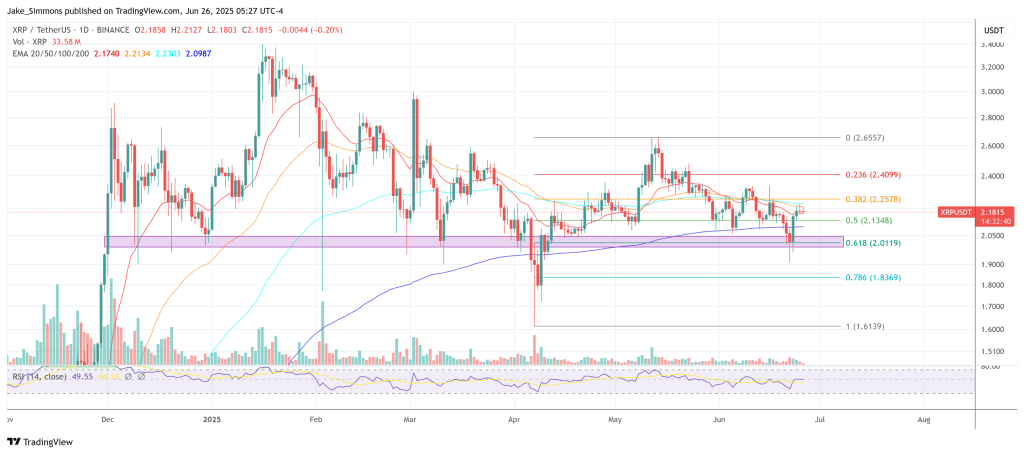Ripple’s latest blog post, published on 25 June under the title “Introducing Permissioned DEX on the XRP Ledger: Unlocking Institutional Access to DeFi,” sets out to solve what it calls the primary roadblock to institutional engagement with decentralized exchanges: regulatory compliance. The company contends that banks, payment processors and other heavily regulated entities have long been locked out of on-chain liquidity because an open order book cannot, by definition, enforce know-your-customer or anti-money-laundering rules. Ripple now claims to have removed that obstacle by grafting compliance controls directly into the core of the XRP Ledger’s decade-old decentralized exchange.
Ripple Just Rewired DeFi On The XRP Ledger
The mechanism relies on two protocol-level standards that have already been submitted for validator approval. The first, called Credentials, is a cryptographically signed attestation—issued by an approved third party—that a given wallet meets specific due-diligence requirements. The second, Permissioned Domains, lets an operator publish a rule set that defines which credential types are acceptable inside a particular trading enclave.
Because the XRP Ledger’s matching engine is built into the base layer rather than a smart contract, the rules are enforced every time the engine evaluates an offer. Any order that fails to present the proper credential is simply invisible to the gated books, while public orders remain visible to the entire network but can never interact with the permissioned pool. Ripple emphasizes that no custom contracts are required, that liquidity remains consolidated on the main ledger and that access controls add zero additional transaction fees.
To illustrate the workflow, the post describes a scenario involving three parties. Bob, who operates a Permissioned Domain, stipulates that only wallets holding a specific KYC credential may trade inside it. Alice, who lives in Bob’s jurisdiction, already possesses the credential and therefore interacts freely with the gated order books. Charles, an arbitrageur eager to exploit price differences between Bob’s market and the open market, acquires the same credential; once approved, he can quote on both sides of the firewall without ever mixing the two liquidity pools, because the ledger enforces the separation automatically.
Ripple devotes much of the announcement to the practical advantages for treasury and payments desks. It argues that a permissioned FX swap can move dollars into a USD-backed token, transmit that value across borders and convert it into a local-currency stablecoin, all within a domain where every counterparty has already cleared KYC.
The same structure, the company says, could underlie contractor payroll in emerging markets, cross-border B2B settlements or internal corporate‐treasury rebalancing among fiat, crypto and tokenised deposits. In each of these use cases, the critical innovation is that counterparties no longer need bilateral legal agreements or off-chain whitelists: the ledger itself guarantees that every participant inside the domain meets the requisite regulatory threshold.
Ripple is careful to argue that permissioning does not dilute the decentralized character of the XRP Ledger. Participation in a gated market is voluntary, the credential schema is open for any trusted issuer to adopt, and validators must still vote the amendments live. Under XRPL governance rules, each amendment—including those that introduce Credentials and Permissioned Domains—must reach at least 80% validator support for a continuous two-week span before it activates. If that bar is cleared, the first permissioned order books could come online by mid-July.
The blog post situates Permissioned DEX within a broader “compliance-by-design” roadmap that already features issuer-controlled transfer limits for stablecoins and escrow primitives for regulated assets. Ripple’s pitch is that institutions no longer have to choose between on-chain efficiency and regulatory peace of mind; the XRP Ledger can now deliver both in a single, protocol-native package.
At press time, XRP traded at $2.18.
